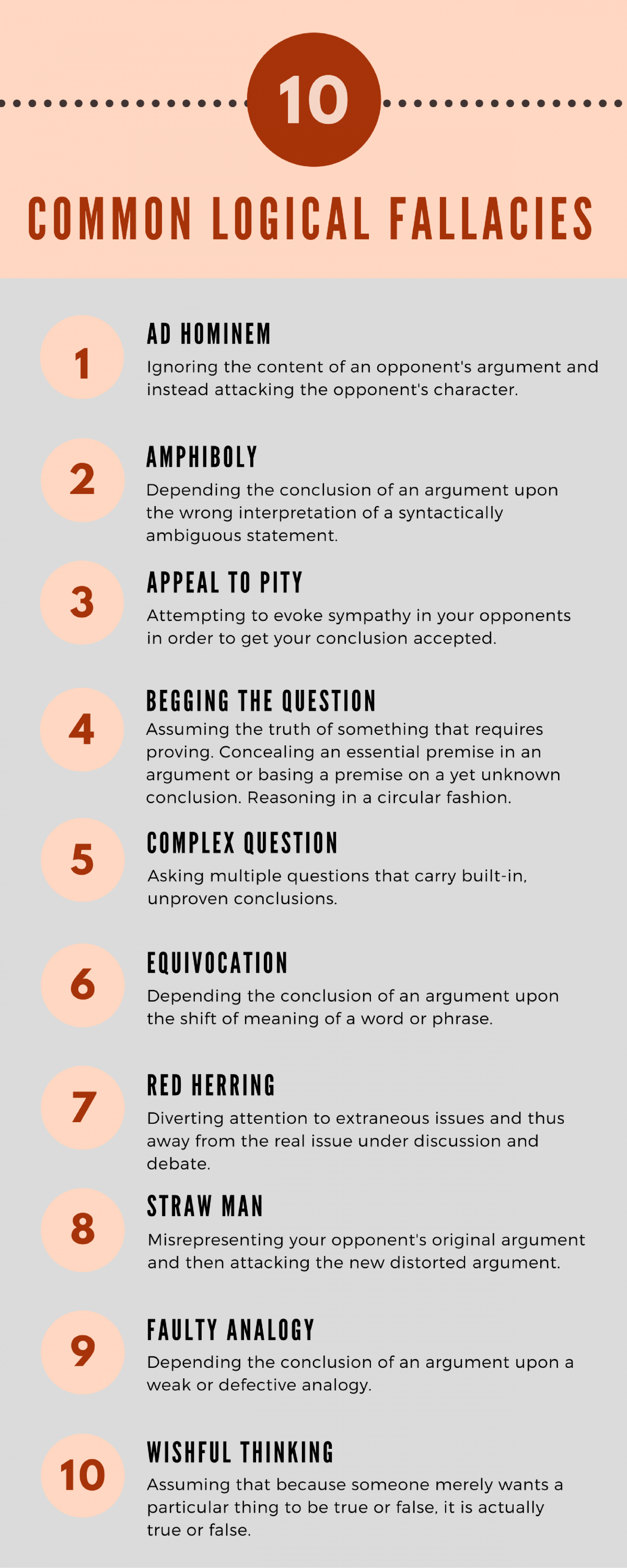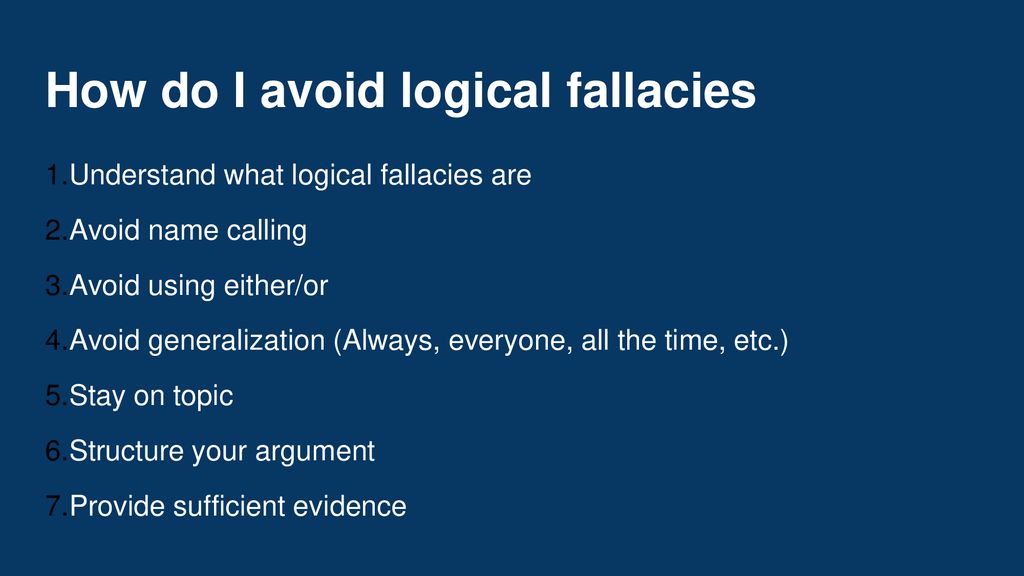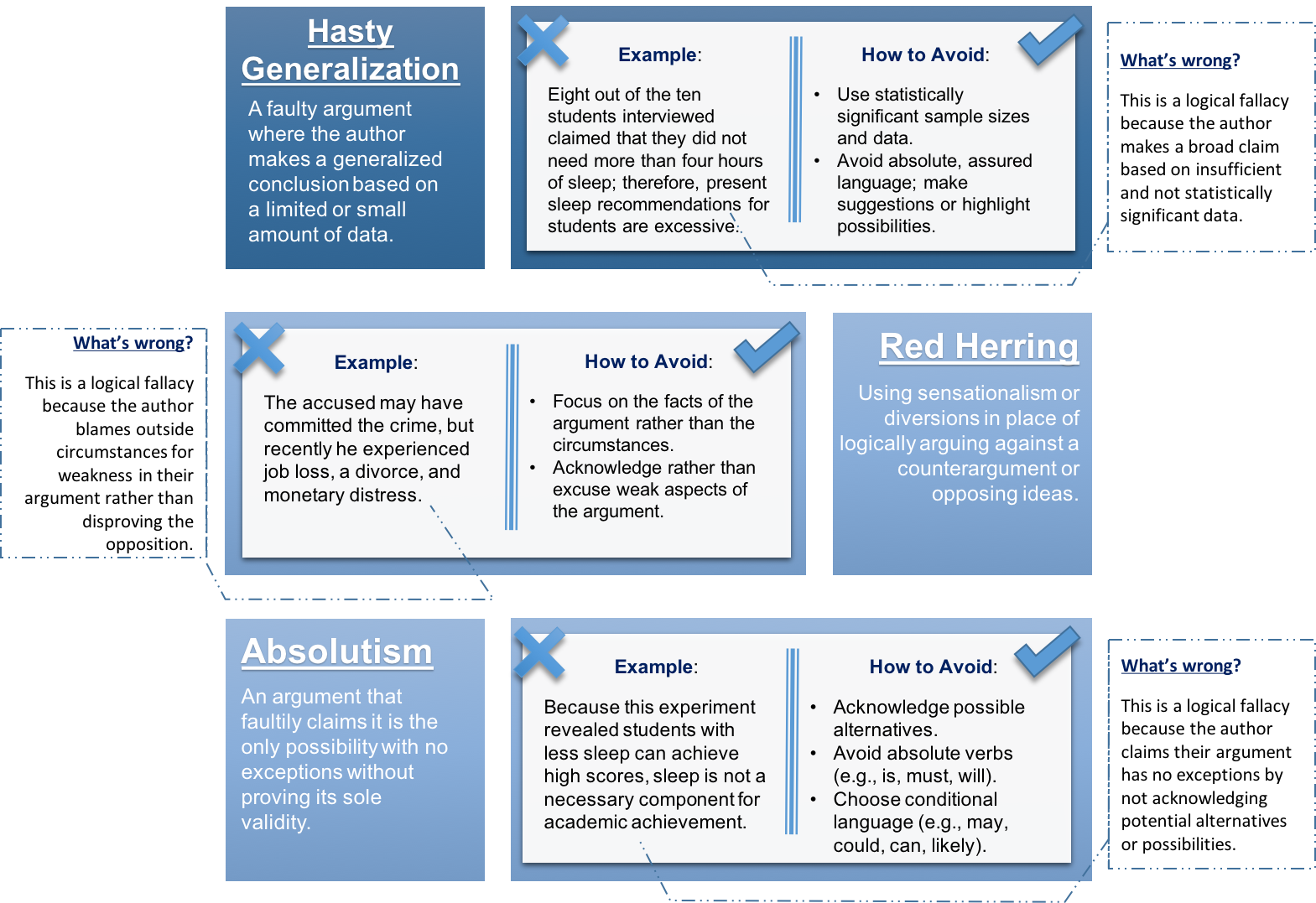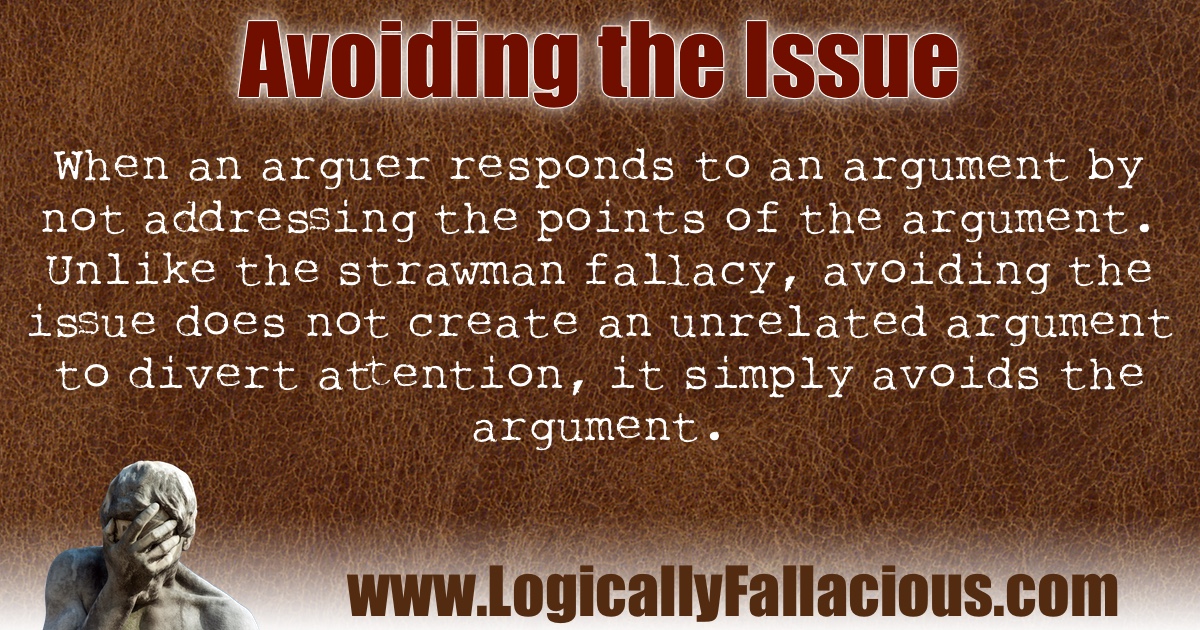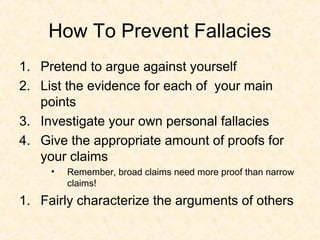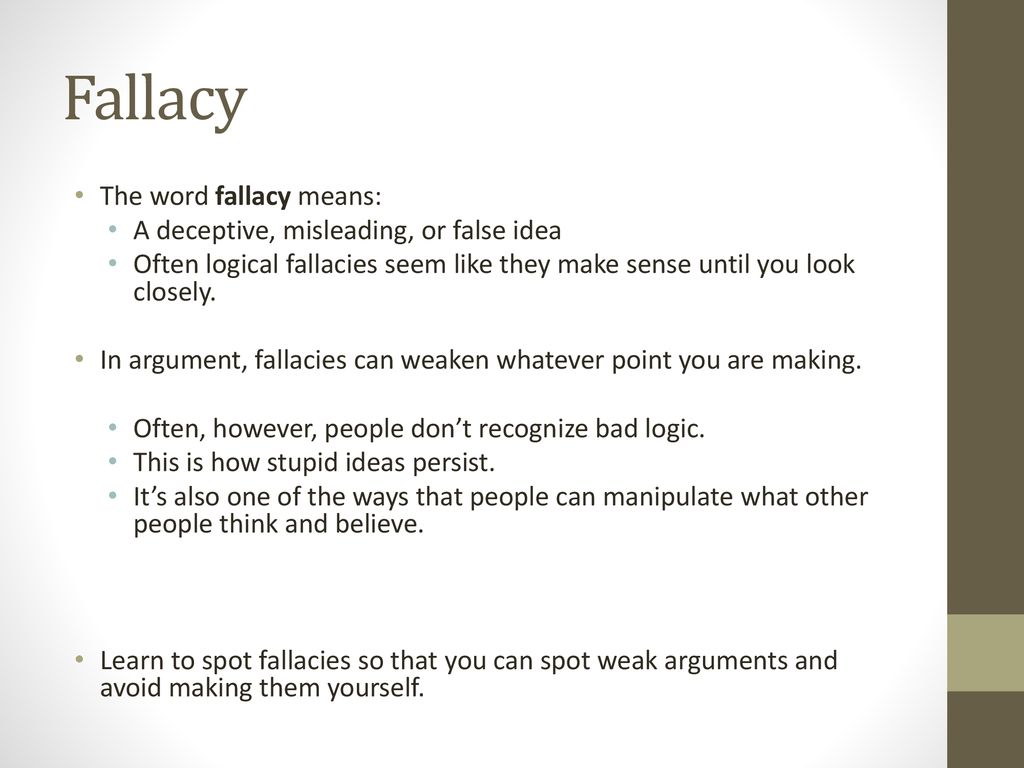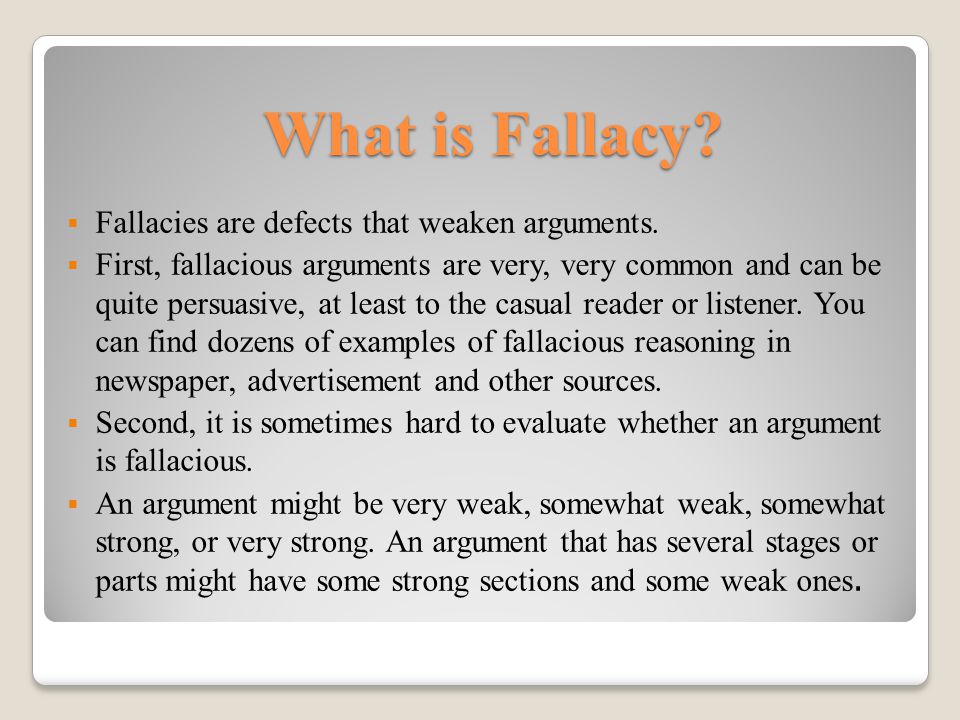Awe-Inspiring Examples Of Info About How To Avoid Using Fallacies
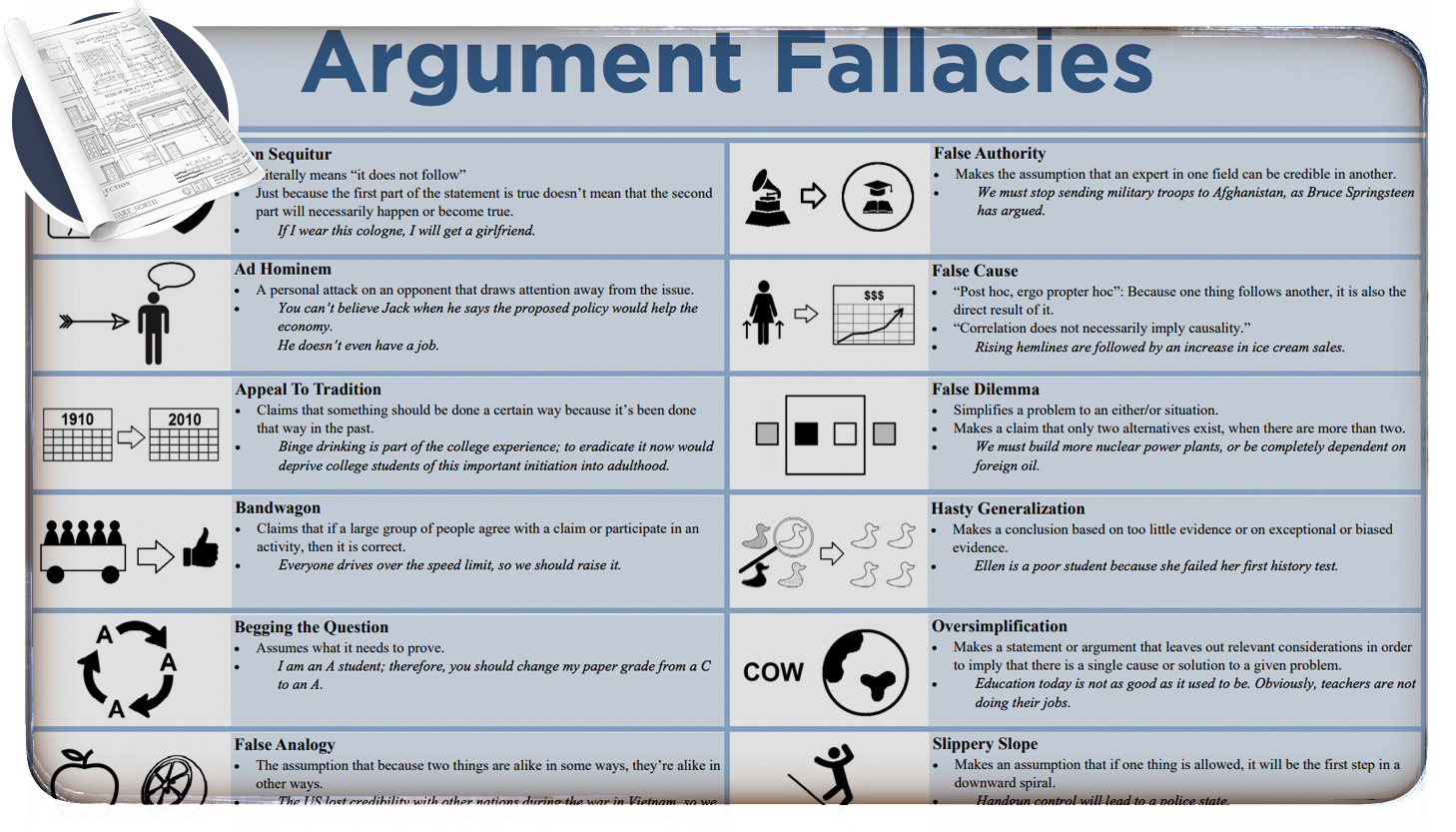
The best way to avoid this is to think about whether you actually understand the causal agent or causal story, and that you’re not.
How to avoid using fallacies. Why fallacies should be avoided? Politicians, salespeople, and children commonly use fallacies in order to get us to think what they want us to think. By recognizing the fallacies below, you can avoid using them in your arguments and catch them while reading other’s arguments.
In light of the above concerns, the next question is: Look at it to see if you can spot any holes or any missing steps needed to move you from premise to. The way we suggest you try and avoid this fallacy is to set out your argument’s premise and its conclusion in brief outline format.
Why is it important to avoid using fallacies in an argument? Fallacies prevent the opportunity for an open, two. Use “emotional appeals” that lack a supporting basis of evidence or reasoning.
Prevent logic errors and ideological reasoning in your writing to avoid undermining the emphasis of your issue. Use feelings avoid using emotions in your essay in order to win an argument. Click to see full answer.
In assessing ordinary arguments, these issues can be avoided by understanding fallacies more simply, as common patterns of faulty reasoning which can usefully be identified. How to counter logical fallacies. For each fallacy listed, there is a definition or explanation, an example, and a tip on how to avoid committing the fallacy in your own arguments.
Logical fallacies are divided into three categories: A story or anecdote adds flavor to your writing ** and makes it more. Logic fallacies are errors in reasoning or connecting.
